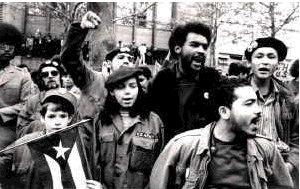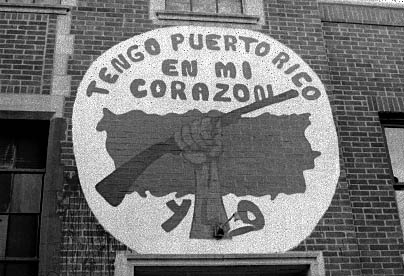I’m sure that most everyone has already heard about Sen. Joseph Biden’s inspired description of Sen. Barack Obama as “the first mainstream African-American who is articulate and bright and clean and a nice-looking guy.” As if we needed yet another ignorant white presidential candidate. Less reported was that the current ignorant white president made similar remarks on Fox News, describing Obama as attractive and articulate.
Much has been written about the incident and the true meaning of those words, both in the mainstream media and the blogosphere (which I’ve been too busy to keep tabs on lately, so I unfortunately won’t be linking to any of the wise words that I’m sure my favorite bloggers have written on the topic.) Today I read two good pieces on the incident; from the New York Times, ” The Racial Politics of Speaking Well,” and another spotted on the blackfolk LiveJournal Community, entitled “An Inarticulate Kickoff.”
Both articles discuss how the frequent labeling of certain Black folks as “articulate” belies racist undertones. First, it indicates a certain degree of surprise that a Black person is intelligent or well-spoken – as if this is an anomaly, rather than something as commonplace as, say, a white person possessing the same qualities. As Reginald Hudlin, president of entertainment at BET, is quoted in the NY Times article, “It’s like an educated black person is a rare sighting, like seeing a spotted egret. We’re viewed as a fluke. How many flukes simply constitute reality?” (A spotted egret! Gotta love it.)
The articles also discuss how the “articulate” label is reserved only for Black folks who are not just well-spoken, but well-spoken in a very particular way. From the Times:
… such distinctions discount as inarticulate historically black patterns of speech. “Al Sharpton is incredibly articulate,†said Tricia Rose, professor of Africana Studies at Brown University. “But because he speaks with a cadence and style that is firmly rooted in black rhetorical tradition you will rarely hear white people refer to him as articulate.â€
And from the piece by Eugene Robinson:
What’s intriguing is that Jackson and Sharpton are praised as eloquent, too — both men are captivating speakers who calibrate their words with great precision. But neither is often described as, quote, articulate. Apparently, something disqualifies them.
…
I realize the word is intended as a compliment, but it’s being used to connote a lot more than the ability to express one’s thoughts clearly. It’s being used to say more, even, than “here’s a black person who speaks standard English without a trace of Ebonics.”
The word articulate is being used to encompass not just speech but a whole range of cultural cues — dress, bearing, education, golf handicap. It’s being used to describe a black person around whom white people can be comfortable, a black person who not only speaks white America’s language but is fluent in its body language as well.
And the word is often pronounced with an air of surprise, as if it’s an improbable and wondrous thing that a black person has somehow cracked the code. I can’t help but think of the famous quote from Samuel Johnson: “Sir, a woman preaching is like a dog’s walking on his hind legs. It is not done well; but you are surprised to find it done at all.”
I’ve had quite a few of my own experiences with being labeled exceptional or articulate in a such a way that the words “… for a Puerto Rican,” though left unsaid, came through loud and clear. The first such incident that I remember came in high school, when a white acquaintance was thoroughly surprised to hear that I was Puerto Rican, because I didn’t sound like other Puerto Ricans she’d encountered. When I asked what she meant, she said something to the effect of “you know, you sound smart.” My budding racial consciousness was offended, but I more saddened to hear almost the exact same thing from a coworker at McDonald’s a few years later – this time, another woman of color.
My mother, who was born in Puerto Rico and was poor for much of her life, likes to jokingly say that she’s a “smart Puerto Rican,” usually in response to some ignorant white jerk acting the racist fool towards her. The joke relies on “smart” and “Puerto Rican” being somehow contradictory. She’s always been extremely insistent that I learn “proper English, discouraging any slang or “street talk,” correcting me every time I said “yeah” instead of “yes” and whenever she thought she heard me leave the “be” off of “because.” It wasn’t enough that I knew the rules of English grammar and could speak and write within those rules when in an academic or work setting; it was a constant requirement, even in casual speech.
I never sounded anything like cousins my age, whose parents weren’t similarly obsessed and couldn’t afford to send them to private school, like my parents could. Language was among many things that created a cultural gulf between me and them, that made me something of a weirdo in my family. My mother was indeed raising me to be fluent in white America’s language, both the spoken language and the body language, because to her, that was the key to my success.
And was she wrong? Probably not. When it came time for college interviews and applications, and later, job interviews, none of my abundant nervousness was about my ability to speak or write; I know that I can talk the talk, and talk it well.
However, in cracking the code of white America, I think there’s also a great deal to be lost. I’m fluent in “standard” English, but when it comes to Spanish, I’m left struggling to express myself. I can understand a great deal, though with some effort, but I can’t speak very well at all, despite it being my family’s native tongue, and despite having studied it for four years in high school and a semester in college. Usually, I’m too ashamed at my lack of skill to even attempt to speak Spanish to Latino strangers. When I meet a white person who can speak Spanish better than me, that shame and frustration becomes tinged with anger. And that feeling of being the weirdo of the family never quite went away (though being a politicized, butch, raging homo might have something to do with it, too.) Class, education, and cultural differences all add up to a significant amount of privilege that most of my family – and far too many Puerto Ricans, Latinos, and people of color in general – will never be able to access.
But while that privilege affords me many an opportunity and many a comfort, it comes at a price: a distance, a disconnection, a weirdo status. I’ve got all sorts of deep down insecurities about being perceived as “too white” and “not Puerto Rican enough” by other people of color. The racism that we’ve internalized tells us that to be highly educated, upwardly mobile, and well versed in the rules of English grammar is to be white, or at least closer to white; that these are things that are not really meant for us; that, if we possess or attain these things, we have in fact lost a little of ourselves, our authenticity, our connection to our people. And mostly, that’s just racist bullshit meant to keep us down; but in another, sad way, because of a certain trade off that can exist between cracking the code and preserving your ties to your culture and your people, it’s true.






